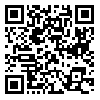BibTeX | RIS | EndNote | Medlars | ProCite | Reference Manager | RefWorks
Send citation to:
URL: http://sjsph.tums.ac.ir/article-1-5358-en.html
2- MD. Professor, Department of Health Education and Promotion, School of Public Health, Tehran University of Medical Sciences, Tehran, Iran ,
3- Ph.D. Professor, Department of Biostatics and Epidemiology, School of Public Health, Tehran University of Medical Sciences, Tehran, Iran
4- Ph.D. Professor, Department of Health Education and Promotion, School of Public Health, Tehran University of Medical Sciences, Tehran, Iran
5- Ph.D. Associate Professor, Department of Health Education and Promotion, School of Public Health, Tehran University of Medical Sciences, Tehran, Iran
Background and Aim: This study was conducted to evaluate the effect of an intervention based on modern communication technologies and the social cognitive theory on the lifestyle of the government employees in the City of Hamadan, Iran in 2014.
Materials and Methods: A randomized control trial [IRCT2014083118989N1] was conducted including a total 435 employees with overweight or obesity. They were divided into a control group receiving no education and two intervention (experimental) groups (IG1 and IG2) receiving a 6-month education under the title of “lifestyle program”. The educational intervention was “telephone-assisted” in IG1 and “web-assisted” in IG2. Six and nine months after the intervention the lifestyle and changes in in the constructs of the social-cognitive theory were determined and compared between the experimental and control groups. Data were collected and analyzed using SPSS-20.
Results: In both intervention groups, the lifestyle program resulted in promoting lifestyle status from “Good” to “Very good” (p=0.001). The intervention in the telephone-assisted group led to increases in the mean scores of the constructs of self-efficacy, environment, outcome expectations, and outcome expectancies, while in the web-assisted intervention group increases were observed only in the mean scores of the constructs of self-efficacy and outcome expectancies (p<0.05).
Conclusion: The results of the present study confirm the effectiveness of a lifestyle intervention based on modern communication technologies and the social-cognitive theory.
Received: 2016/07/5 | Accepted: 2016/07/5 | Published: 2016/07/5
| Rights and permissions | |
 |
This work is licensed under a Creative Commons Attribution-NonCommercial 4.0 International License. |





